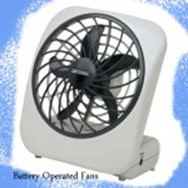Guest post by Helen Ruth
It was a record breaking 114 degrees in West Texas, and as luck would have it, our air conditioner broke! Pregnant, and living paycheck to paycheck, I had to find ways to cool down and QUICK!
What I remember the most about that time is how my family managed to stay comfortable at night. With the fan blowing on high, we’d cover ourselves in our beds with wet bath towels. Unbelievably, we’d wake up cold.
Fast forward 10 years later, and my family is handling another heatwave, this time in central Texas. With more than three months in a row of nonstop 100 degree weather, we were sapped of energy. I call that period in time, “the year I didn’t garden.”
It was the year I also took a good look around me and realized that I did NOT want to be caught unprepared during a heatwave with no power.
We naturally have an air conditioner, and plenty of fans, but I wanted to make sure my family would be able to keep our cool, even if we didn’t have electricity.
Lessons from the Past
While volunteering at Pioneer Farms on sweltering days my family would get asked lots of questions.
“Aren’t you hot in that long dress?” People would ask as they stood around in their tee shirts and shorts.
“How do you stay cool when there’s no air conditioner?” Another asked.
“Where do you get ice?” A child piped.
Those were the types of questions I enjoyed answering the most, as I wasn’t just repeating what our ancestors did, I was actually living through the experience!
I explained that believe it or not, the long cotton dress I wore, actually kept me more comfortable and cool, than if I were wearing shorts. Not to mention, the full skirt and sleeves protected me from sunburn, and bug bites.
Light and loose flowing clothes, in natural fibers like cotton, or linen, will actually draw moisture from the skin, evaporate, and cool a person down.
During extreme hot weather, we’d water the garden, and save the hard work for early in the mornings or late evenings when things cooled down. We also made sure to check on the animals to see if they had plenty of shade and water.
Cold Beverages versus Room Temp
As for ice, there was no refrigeration. A respite from hot weather would be to walk inside the underground root cellar where temperatures could be 40 degrees or cooler than what is outside. This is where food was stored and preserved. Kept in darkness, the root cellar felt like a cave year round.
At first, I couldn’t imagine drinking room temperature water when my family first started volunteering. I had thought that in order to “cool down” my beverage needed to be cold. I have since learned that staying hydrated with lukewarm water is actually preferable. Not that I don’t enjoy a nice glass of ice cold tea on a hot sizzling day, but it is nice to know that we can survive without ice!
I also find it interesting that some studies have shown that athletes that drink cold water show a decrease in performance in comparison to those who consume room temperature.
Years ago, homes were built with no artificial air conditioning. Back then, people gravitated to their front porch to stay cool, or to enjoy the breezeway. Called a dogtrot, there would be two cabins built side by side, and the connecting hallway between would pull in the air currents, causing a cooler breeze.
Today, as I look at homes, I wonder about the lack of front porches and how families would stay cool during a heatwave with no air conditioning.
Keeping Cool, Without Electricity
Here are a few ideas for keeping your cool when there’s no air conditioning. Coolest of all, no electricity needed.
My first priority for preparing for hot weather without power, was to purchase plenty of battery operated fans. Just like in my experience in West Texas, I wanted to make sure I had moving air to circulate around wet clothes or towels.
I also make it a priority to have plenty of spare batteries, including batteries that can be recharged by solar power. There are solar powered battery chargers that you can purchase online, as well as pocket sized mini solar panels that you can hook up to battery chargers or cellphones.
Another benefit to moving air is mosquitoes and flies! That’s right, mosquitoes and flies find it hard to zero in for the landing when air is blowing. I learned this first hand while backpacking in Israel.
Cooling towels are a wonderful invention! My experience is with the Frogg Toggs, which come in a variety of shapes, sizes and colors. Initially they feel like cardboard, but once wet, they stay cool and rubbery until they dry again. These towels are perfect for those times when you don’t have moving air.
I keep these in my car for road trips where I could potentially break down during hot weather. Just pour bottled water over the towel, and presto! Instant coolness. One day, I took my Frogg Togg out for a trial run when my air conditioner went out on my Jeep. With suffocating temperatures inside the vehicle, I drove across town with a wet Togg around my neck. Life was bearable!
I’ve touched base on battery operated fans, but there’s also battery operated spray bottles on the market where you can have a fan blowing with water. I especially like using spray bottles, battery operated or not, with essential oils.

Essential oils like mint cool the skin on contact. Another reason I love spray bottles and essential oils is for those high humidity days. Imagine your house baking in extreme heat, with people and pets moving about. My favorite spray is lavender and water. I add about 20 drops to a small spray bottle and spritz the house. This not only makes your home smell wonderful, but the calming blend soothes the nerves and it’s healthy to breathe and natural!
How do You Keep Cool?
Again, these are ideas for keeping your cool when there is no power and air conditioning.
Please keep in mind that the elderly and young are more susceptible to heat injuries and need to be looked after.
Stay hydrated everyone, drink lots of water, wear natural fiber clothes, don’t overwork when it’s hot outside, wear a hat.
Start now to make sure you are staying prepared.
Via: thesurvivalmom






 Follow
Follow
Leave a Reply